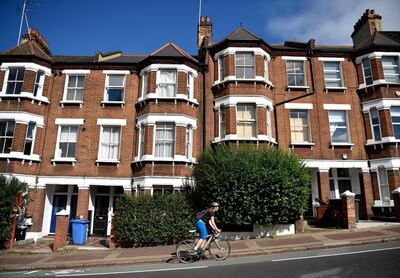UK house prices have fallen year-on-year for the first time since December 2012 with the economic fallout from the coronavirus outbreak to blame, new research has found.
According to an index by the Nationwide Building Society, annual property values fell by 0.1 per cent as of June and dropped month-on-month by 1.4 per cent. The monthly decrease was less than in May, when a 1.7 per cent decline was reported.
Robert Gardner, Nationwide Building Society’s chief economist, said prices in June were 3.2 per cent lower than in April on a seasonally adjusted basis.
“It is unsurprising that annual house price growth has stalled, given the magnitude of the shock to the economy as a result of the pandemic. Economic output fell by an unprecedented 25 per cent over the course of March and April – almost four times more than during the entire financial crisis,” he said.
“Housing market activity also slowed sharply as a result of lockdown measures implemented to control the spread of the virus. While latest data from [revenue agency] HMRC showed a slight pickup in residential property transactions from April’s low, in May they were still 50 per cent lower than the same month in 2019.”
Mortgage activity was even more severely affected, with 9,300 approvals for house purchases in May, down from 73,700 in February.
The UK has been one of the countries hardest-hit globally by Covid-19, with close to 44,000 deaths and well over 310,000 confirmed cases. Only in the coming weeks is a semblance of normality expected to return after lockdown measures were imposed in March.
Mr Gardner said recent government moves to kick-start the economy should help, although he warned a tough and uncertain road lay ahead.
“With lockdown measures due to be eased in the weeks ahead, housing market activity is likely to edge higher in the near term, albeit remaining below pre-pandemic levels. Nevertheless, the medium-term outlook for the housing market remains highly uncertain.
“Much will depend on the performance of the wider economy, which will in turn be determined by how the pandemic and restrictions on activity evolve, including any behavioural shifts.
“The raft of policies adopted to support the economy, including to protect businesses and jobs, to support peoples’ incomes and keep borrowing costs down, should set the stage for a rebound once the shock passes and help limit long-term damage to the economy.
“These same measures should also help ensure the impact on the housing market will ultimately be less than would normally be associated with an economic shock of this magnitude,” Mr Gardner said.
Average house prices in London remain significantly higher than the rest of the UK at £475,448 (Dh2.16 million) while homes in north-east England have the lowest price at £129,505.

It came as the UK’s chamber of commerce issued a warning that the country’s economic conditions had deteriorated at an unprecedented rate in the second quarter of 2020.
A survey of 7,700 businesses, employing more than 580,000 people in Britain, saw 11 of 14 key indicators in the service sectors drop to their lowest levels on record, including sales, orders and cash flow.
Business confidence had dropped to record lows and hopes of a swift reversal in fortunes were unsteady.
Adam Marshall, the director-general of the chamber, said “swift and substantial” action was needed.
“The government has one chance to jump-start the economy and business confidence over the coming weeks – and they must take it,” he said.
“Business communities across the UK want to see a clearer, bolder road map to recovery that helps them restart, rebuild and renew. The UK cannot meander its way back to success in this era of uncertainty.
“The only way to rekindle business and consumer confidence is to demonstrate an absolute and unshakeable focus on boosting the economy over the coming months.”








